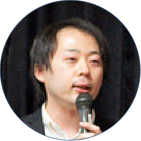 Cultural, sociological and political science expert with Japan’s Institute of Sustainable Energy Policies (ISEP), Shota Furuya, says this is his main message to potential supporters of the community energy sector. “I have been working with this sector for 10 years and every time I go into communities I see wonderful cooperation and collaboration between many interesting people.”
Cultural, sociological and political science expert with Japan’s Institute of Sustainable Energy Policies (ISEP), Shota Furuya, says this is his main message to potential supporters of the community energy sector. “I have been working with this sector for 10 years and every time I go into communities I see wonderful cooperation and collaboration between many interesting people.”
Established in 2000, ISEP has helped pioneer community energy projects in Japan. Personally inspired by community energy stories from Germany and Denmark, Shota quietly states “Especially since Fukushima, we have many, many initiatives and I have supported several successful community projects. My role is to set up the forum for multi-stakeholder engagement, then facilitate consensus, project planning and development.” Then, when communities successfully start their process, he will work with them on dialogue between stakeholders. “I introduce skilled experts to practitioners and build networks among them.”
“Fukushima is very divided since the nuclear accident and communities are very sensitive to energy issues. Most people are interested in renewable energy but don’t know how to do it so we go to the communities and talk with people and advise how to start the process and how to plan and develop their projects with multi-stakeholder participation.”
“My main objective for the Congress is to share inspiring community energy stories from Japan with the Australian people. My second objective is to build a network between Australia and Japan. Renewable energy is essentially decentralised and distributed, so individuals, organisations and communities are often isolated, but sometimes international connection between those players brings unexpected new ideas, so I hope we can inspire each other.”
And with inspiration comes motivation.

